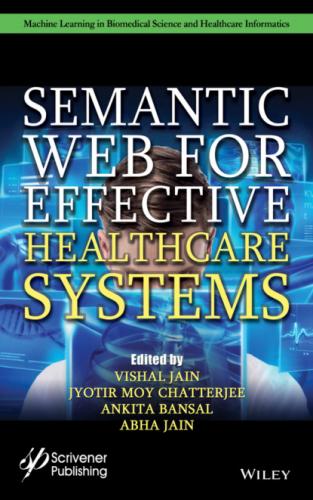14 9 Precision Medicine in the Context of Ontology 9.1 Introduction 9.2 The Rationale Behind Data 9.3 Data Standards for Interoperability 9.4 The Evolution of Ontology 9.5 Ontologies and Classifying Disorders 9.6 Phenotypic Ontology of Humans in Rare Disorders 9.7 Annotations and Ontology Integration 9.8 Precision Annotation and Integration 9.9 Ontology in the Contexts of Gene Identification Research 9.10 Personalizing Care for Chronic Illness 9.11 Roadblocks Toward Precision Medicine 9.12 Future Perspectives 9.13 Conclusion References
15 10 A Knowledgebase Model Using RDF Knowledge Graph for Clinical Decision Support Systems 10.1 Introduction 10.2 Relational Database to Graph Database 10.3 RDF 10.4 Knowledgebase Systems and Knowledge Graphs 10.5 Knowledge Base for CDSS 10.6 Discussion for Further Research and Development 10.7 Conclusion References
16 11 Medical Data Supervised Learning Ontologies for Accurate Data Analysis 11.1 Introduction 11.2 Ontology of Biomedicine 11.3 Supervised Learning 11.4 AQ21 Rule in Machine Learning 11.5 Unified Medical Systems 11.6 Performance Analysis 11.7 Conclusion References
17 12 Rare Disease Diagnosis as Information Retrieval Task 12.1 Introduction 12.2 Definition 12.3 Characteristics of Rare Diseases (RDs) 12.4 Types of Rare Diseases 12.5 A Brief Classification 12.6 Rare Disease Databases and Online Resources 12.7 Information Retrieval of Rare Diseases Through a Web Search and Other Methods 12.8 Tips and Tricks for Information Retrieval 12.9 Research on Rare Disease Throughout the World 12.10 Conclusion References
18 13 Atypical Point of View on Semantic Computing in Healthcare 13.1 Introduction 13.2 Mind the Language 13.3 Semantic Analytics and Cognitive Computing: Recent Trends 13.4 Semantics-Powered Healthcare SOS Engineering 13.5 Conclusion References
19 14 Using Artificial Intelligence to Help COVID-19 Patients 14.1 Introduction 14.2 Method 14.3 Results 14.4 Discussion 14.5 Conclusion Acknowledgment References
20 Index
Guide
1
